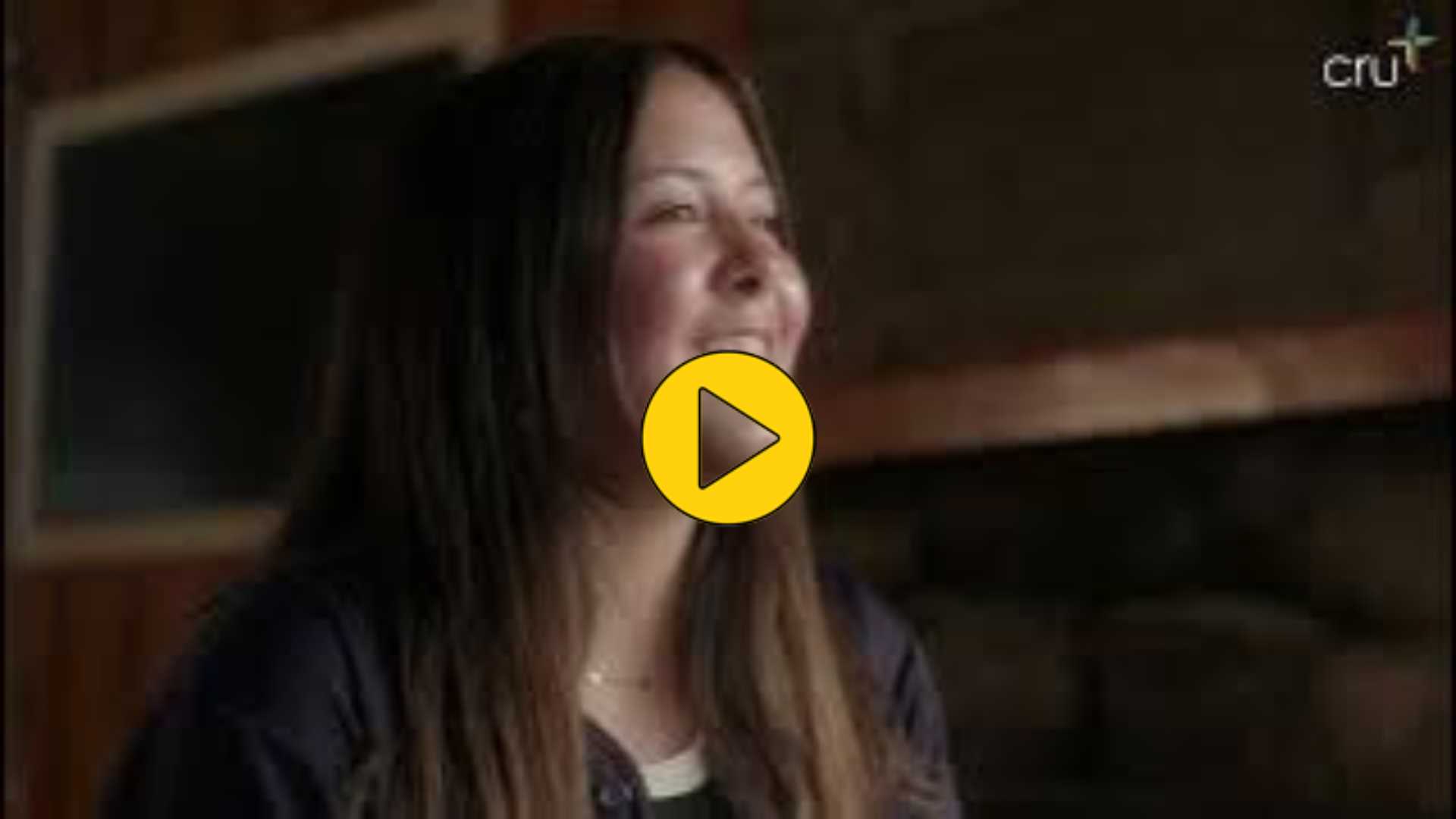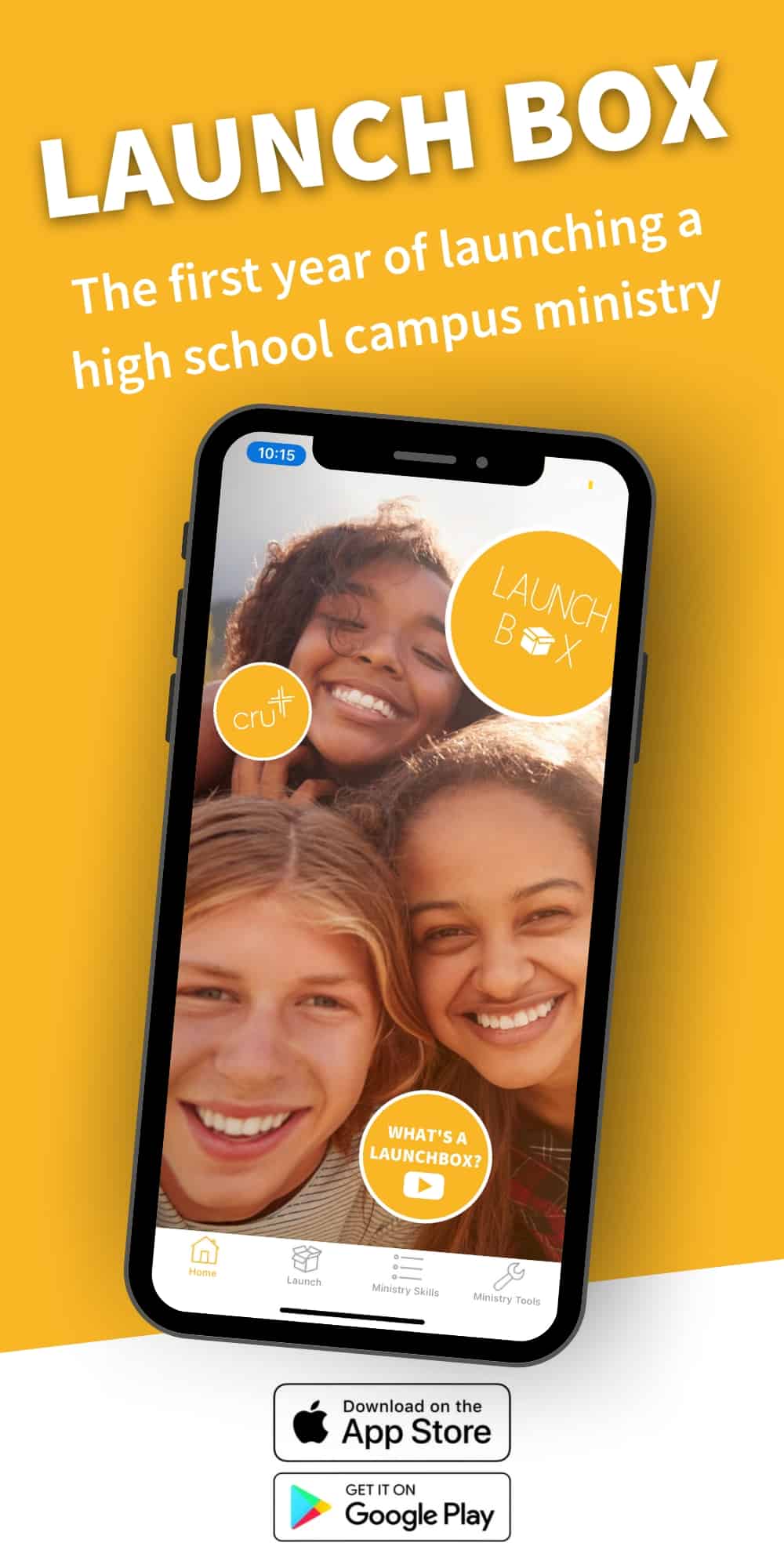Many Cru volunteers and staff feel nervous about meeting the parents of the students with whom they work. Some say they feel intimidated and are worried that parents will be suspicious of them and the work we do. However, it does not have to be this way. If you feel stressed about meeting parents, remember you and the parent have something in common–you both want their student to thrive!
This is why Cru exists on high school campuses. We believe the good news of Jesus Christ helps students thrive in their spiritual life and that overflows into EVERY part of their life. Many parents want the same for their children. Showing selfless, humble concern for their child will win many parents to your cause.
This is great advice, but how do you explain what we actually do?
Giving a Good Explanation
The best kind of explanations are concise, clear, and given with confidence. Learning to explain Cru to parents will build trust with them and the more you do it, the more natural it will feel.
It is true, Cru can be confusing to some parents. It is not well known, and we are a little different from other campus clubs or organizations. Some other organizations may focus on athletes, college-age students, or are just less focused on Jesus and talk more about values. Parents may not understand why or how we do the things we do.
In your explanation, you do not need to tell parents all the details of everything we do. If you do this, your explanation will be long, confusing, and really parents do not want to know everything. You need to give the parents the information they want to know, which is the information they need.
However, if you are vague and not too specific, this will just raise suspicion. A suspicious parent will not have the desired outcomes. Your goal then, is to answer the most important questions parents have and to answer a parent’s biggest question of all, “Can I trust you with my child?”
This is a delicate balance, but know your goal is not the perfect presentation. We may put a lot of pressure on ourselves. We may think that we can change people’s minds, but the truth is we cannot change people. That is God’s job.
Some parents may not like Cru and refuse to let their child attend. It is not our job to change their minds or their hearts. However, having a good explanation may help remove some barriers.
We want to be faithful to present our mission with Cru as best we can and trust God with the results.
Meeting parents to tell them what Cru does is the first step toward aligning with parents.
Prepare an Explanation
Using generalities such as “Cru is a Christian student outreach” or “We do student-led clubs” will only get you so far and may only be helpful for some parents. Instead of using these terms or clichés, it is best to just memorize a clear, concise explanation of your local Cru movement, one you can share anytime you get the “What is Cru?” question from parents.
Your local Cru ministry will have its own unique characteristics or strategies for reaching students at your local campus, but in general, you want to answer the big five: what, who, where, how, and why.
Here is an example of an explanation from a city that uses a student-led club strategy. It answers some of the questions that parents are going to have.
“I’m <name> and I’m a volunteer with Cru. Cru is a faith-based organization whose staff and volunteers help coach and support the student leaders for our after school Bible club. We want to provide safe spaces on campus where students can learn about faith in Jesus Christ, feel like they belong, and can live out their faith at school.”
After hearing this explanation, parents would know that Cru…
- is faith-based
- has staff, volunteers, and student leaders
- is on-campus
- has after-school clubs
- wants students to learn about following Jesus and to be part of a community of believers at school.
This sample does not answer every question, but it gives parents some information they need to know. They can follow up with more specific questions. Listen carefully to the questions parents ask because this will reveal what they are most concerned about.
They may ask…
- Is this part of a church? (I’m curious about what you believe/teach.)
- When do you meet? (I want my kids to be there to check it out.)
- How can you have a faith club at school? (I’m not sure this is legal.)
- Who comes to these clubs? (I’m curious who else I can ask about this.)
- Do you have a website or social media? (I’m going to do some research.)
These are good questions that parents may ask and you will want to have an answer for each one of them. Work with your local staff to find the specific answers to these types of questions. You may want to make sure you understand Cru’s local history in your city and other ministries in area schools and colleges.
Putting in the effort will help you craft a clear, concise explanation of your local Cru ministry.
The best kind of explanations are concise, clear, and given with confidence.
Good Parents Want Good Things
We believe Cru offers something good to students, but not everyone will see the value of the gospel.
Cru only works with students who are interested in growing in their faith. This is true for parents too. We cannot force parents to see the value in Cru. If parents do not think it is good for their kids to be involved, it is not our job to make them.
Christian Parents
We may be tempted to assume that parents who go to church will understand Cru’s mission and want their kids to be part of it. However, that is not necessarily the case. Some Christian parents worry that because Cru is not part of a local church (more specifically, their local church), their kids will distance themselves from the church.
If that is a concern for a parent, share how your local Cru ministry actively works to support local churches and promotes student involvement in their church. Talk about how we develop strong relationships with youth pastors and help connect new believers to their churches.
Non-Christian Parents
We may also assume that parents who are not Christians would not want their students to be part of Cru. Once again, this may not be true.
We do not need to be vague or nervous when talking to someone from another faith or from no faith background. In fact, parents are welcome to visit clubs, Bible studies, or large group meetings to see what we do. We do not hide what we do and many people may see it as good and valuable even if they do not believe in Jesus or the Bible.
If you meet a parent with a different faith, you may want to think of how you can explain Cru to someone without using terms that only Christians would understand. Terms like discipleship or fellowship may be confusing and sound questionable. Replacing those with words like “mentoring” or “community” may remove some of the confusion and help parents see how Cru could be valuable even if they do not share the same beliefs.
Showing selfless, humble concern for their child will win many parents to your cause.
Building Trust
Meeting parents to tell them what Cru does is the first step toward aligning with parents. You want to be on the same team to help their child grow and thrive in their faith.
If our goal is to help students thrive in every part of their lives, parents should be part of that goal. Never pass up an opportunity to meet a parent, because parents can be your best partner in your work on campus.
Take time to reach out to parents and keep the conversation going with them about helping their kids thrive. Care about parents and be a trustworthy person so you have the opportunity to work with parents toward long-term growth.
Additionally, if a student ever wants to go with us to a conference or summer mission, building trust with parents will make it much easier for the parent to decide if they can trust Cru with their child.
You do not have to be intimidated about meeting parents. If you want good, healthy things for their kids, then parents will definitely want you on their side to help raise their kids into mature adulthood—both physically and spiritually.
Next Step
Call a parent of newly involved student, introduce yourself and explain Cru. For more information on involving parents, go on to Five Principles for Connecting with Parents.
Five Principles for Connecting with Parents








